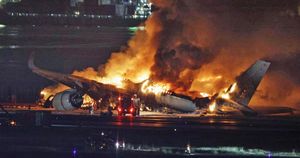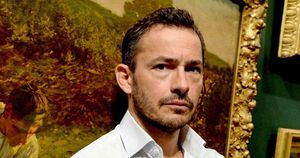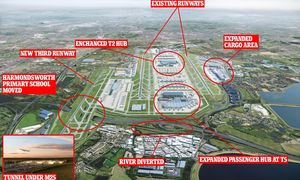On January 31, 2025, Zimbabwe’s President Emmerson Mnangagwa hosted an Extraordinary Summit of the Southern African Development Community (SADC) to address the intersection of security and humanitarian crises enveloping the eastern Democratic Republic of the Congo (DRC). This summit arrives against the backdrop of deteriorated conditions marked by increased violence from the M23 rebels, raising questions about the effectiveness of regional diplomatic efforts aimed at restoring peace.
Leading up to the summit, the conflict has escalated alarmingly, prompting urgent discussions among SADC leaders. Zimbabwe’s Minister of Foreign Affairs and International Trade, Prof Amon Murwira, confirmed on X, "This extraordinary summit is going to be on the eastern DRC problem. We are expecting heads of State and government from all SADC countries to come." This summit aims not only to discuss peace efforts but also to extend the mission of the SADC troops deployed to assist the DRC government amid rising unrest.
Alongside the SADC meetings, the East African Community (EAC) convened virtually on the same day, led by Kenya's President William Ruto. Unfortunately, this summit yielded frustrating results, as various leaders, including DRC President Felix Tshisekedi, exhibited skepticism toward Ruto’s involvement. He refrained from joining the virtual meeting, accusing Ruto and others of partisan bias toward certain factions within the conflict. Consequently, discussions of peace were met with distrust and geopolitical complexity.
The EAC summit expressed condolences for the loss of 13 South African peacekeepers killed by M23 rebels and called for immediate ceasefire and humanitarian access to affected populations. This call was echoed by East African leaders, including President Yoweri Museveni of Uganda, highlighting the dire humanitarian situation. The communiqué from the EAC stated the need for all conflicting parties to cease hostilities and engage directly with representatives of M23, alongside other discontented groups within the DRC.
President Kagame of Rwanda took to social media to defend his country, rejecting claims of Rwanda's complicity with the M23 fighters. “If South Africa wants to contribute to peaceful solutions...but South Africa is in no position to take on the role of peacemaker,” he asserted. Kagame's tone indicates the intricacies and heightened tensions connected to the region’s historical frictions. He alleges the South African forces positioned within the DRC are not functioning as unbiased peacekeepers but rather as engaged combatants, contributing to the conflict's escalation rather than alleviation.
Ruto's attempts to mediate were met with significant hurdles. Analysts pointed out Ruto's perceived vested interests sowed doubt among regional heads of state about his suitability as mediator. Prof Macharia Munene, commenting on the issue, stated, “President Tshisekedi sees Kenya as an interested party...so he could not be summoned to a meeting by an interested party.” This sentiment reinforces the notion of suspicion among leaders, complicates diplomatic discourse, and undermines multilateral efforts.
This segue of events captures the continuous turbulence gripping the eastern DRC, home to vast mineral wealth but also longstanding conflicts between various rebel factions and the central government. Recently, the resurgence of the M23 rebels, once again, creates cycles of violence and human dislocation. Analysts warn at this juncture, the need for open dialogue and genuine engagement with all stakeholders could be pivotal.
Consequently, as leaders of both the SADC and EAC converge to confront the prevailing crisis, it remains abundantly clear: the political intricacies of the region are key players. The absence of DRC President Tshisekedi at the EAC summit is emblematic of broader issues of mistrust and claims of favoritism sitting at the heart of this multifaceted crisis.
These developments not only draw attention to regional politics but signal the broader ramifications of security exploitation undermining the economic prospects of African nations. Murwira emphasized this when he stated, "Any form of instability in the SADC region is an affront on the economic development efforts of the region."
With the backdrop of political, military, and humanitarian concerns, the upcoming SADC summit evolves beyond just peace discussions; it becomes the crucible of political will and resolve necessary to dismantle the barriers standing against reconciliation and restoration of regional stability. The next steps for the DRC and its neighbors dictate not just local dynamics but hint at wider implications for South Africa and Eastern African countries facing the twin challenge of conflict management and sustainable development.



